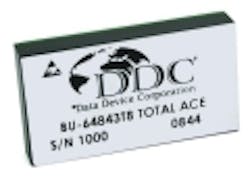Army unmanned vehicle buy to apply 94 military robots for bomb disposal, route clearance, and surveillance
BEDFORD, Mass., 29 July 2010. The U.S. Army is ordering 94 small unmanned ground vehicles (UGVs) from a team of iRobot Corp. in Bedford, Mass., and the Boeing Co. in Huntsville, Ala., for unmanned vehicle missions such as explosive ordnance disposal, route clearance, and reconnaissance. The Army is ordering the 29-pound backpackable tracked battlefield unmanned systems from the iRobot/Boeing team under terms of a $14.6 million contract announced this week.
The iRobot [NASDAQ: IRBT] and Boeing [NYSE: BA] team will provide the Army with the model 310 Small Unmanned Ground Vehicle (SUGV), plus spare parts. These military robots provide "the dismounted explosive ordnance disposal technician with the ability to perform reconnaissance during extremely hazardous EOD missions involving unexploded ordnance and improvised explosive devices," says Bob DaLee, robotics program manager for Boeing Network & Tactical Systems in Huntsville, Ala.
As the prime contractor, Boeing provides program management, contracts, government-test support, and quality-control support. Meanwhile, iRobot is responsible for engineering, government-test support, manufacturing, training, and logistics services, with the majority of work conducted at iRobot's headquarters in Bedford, Mass.
"Warfighters can carry and quickly deploy the SUGV at a moment's notice, which is crucial in challenging environments such as Afghanistan. These robots are saving lives every day," says Joe Dyer, president of iRobot's Government and Industrial Robots division. This order, the contract's fifth, brings the total units ordered by the U.S. government to 323.
For more information contact iRobot Government and Industrial robots online at www.irobot.com/gi, or Boeing Defense, Space & Security at www.boeing.com/bds.

